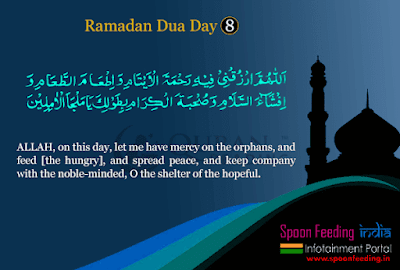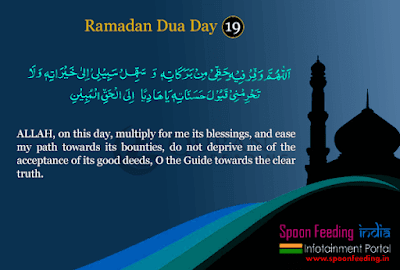Shaheed Diwas, also known as Martyrs' Day, is a day of remembrance observed in India on March 23 every year. The day commemorates the sacrifice of three young freedom fighters – Bhagat Singh, Sukhdev Thapar, and Shivaram Rajguru – who were hanged to death by the British colonial government on March 23, 1931.
Sukhdev, Bhagat Singh, and Rajguru are among the most prominent freedom fighters in the Indian independence struggle. These brave men sacrificed their lives for the cause of freedom and are remembered as martyrs to this day. In this article, we will explore their lives, their contributions to the Indian independence movement, and the circumstances that led to their untimely death.
Sukhdev Thapar was born in 1907 in Ludhiana, Punjab. From a young age, he was deeply involved in the independence struggle and was associated with the Hindustan Socialist Republican Association (HSRA), a revolutionary organization that sought to overthrow British rule in India. Sukhdev was a close associate of Bhagat Singh, and together they carried out a number of revolutionary activities.
Bhagat Singh was born in 1907 in Banga, Punjab. Like Sukhdev, he was deeply committed to the cause of Indian independence and was associated with the HSRA. Bhagat Singh is considered one of the most influential revolutionaries in Indian history, and his actions inspired a generation of young Indians to fight for freedom.
Rajguru, whose real name was Harijinder Nath Bimal, was born in 1908 in Khed, Maharashtra. He was also a member of the HSRA and was a close associate of Bhagat Singh and Sukhdev. Rajguru played a key role in many revolutionary activities, including the assassination of a British police officer named J.P. Saunders.
These three brave men worked tirelessly to achieve independence for India, and their actions inspired many others to join the struggle. They were known for their daring and bold actions, and they were willing to put their lives on the line for the cause of freedom.
The circumstances that led to their hanging were tragic, and their death was a great loss for the Indian independence movement. In 1928, the British government passed the Public Safety Bill and the Trade Disputes Bill, which severely restricted civil liberties and gave the authorities greater powers to suppress political dissent. In response to these laws, the HSRA decided to take action.
On April 8, 1929, Bhagat Singh and Batukeshwar Dutt, another member of the HSRA, carried out a bomb attack in the Central Legislative Assembly in Delhi. The intention of the attack was not to harm anyone, but rather to draw attention to the repressive policies of the British government. The bomb exploded, and Bhagat Singh and Batukeshwar Dutt were arrested.
During their trial, Bhagat Singh and his colleagues, including Sukhdev and Rajguru, made it clear that they were not afraid to die for their cause. In fact, they welcomed the opportunity to become martyrs for the cause of Indian independence. They were charged with murder, conspiracy, and other crimes, and were sentenced to death.
On March 23, 1931, Sukhdev, Bhagat Singh, and Rajguru were hanged in the Lahore Central Jail. Their deaths sparked widespread outrage and led to a renewed commitment to the cause of Indian independence. The sacrifice of these brave men inspired many others to take up the fight for freedom, and their legacy continues to inspire generations of Indians to this day.
The death of Sukhdev, Bhagat Singh, and Rajguru was a great loss for India, but their sacrifice was not in vain. Their actions helped to galvanize the Indian independence movement and inspired millions of people to work towards a free and independent India.
Today, Sukhdev, Bhagat Singh, and Rajguru are remembered as national heroes in India. Their portraits adorn public buildings, and their names are celebrated in songs, books, and films. They continue to inspire generations of Indians to fight for their rights and freedom, and their sacrifice remains a shining example of what it means to be a patriot.
In conclusion, the hanging of Sukhdev, Bhagat Singh, and Rajguru was a tragic event in Indian history, but their bravery and sacrifice will always be remembered and revered. They were true patriots who fought for the freedom of their country, and their contributions to the Indian independence movement will never be forgotten.
షహీద్ దివస్, అమరవీరుల దినోత్సవం అని కూడా పిలుస్తారు, ఇది భారతదేశంలో ప్రతి సంవత్సరం మార్చి 23 న జరుపుకునే సంస్మరణ దినం. 1931 మార్చి 23న బ్రిటిష్ వలస ప్రభుత్వం ఉరితీసిన ముగ్గురు యువ స్వాతంత్ర్య సమరయోధులు - భగత్ సింగ్, సుఖ్దేవ్ థాపర్ మరియు శివరామ్ రాజ్గురు - త్యాగాన్ని ఈ రోజు స్మరించుకుంటుంది.
సుఖ్దేవ్, భగత్ సింగ్, మరియు రాజ్గురులు భారత స్వాతంత్ర్య పోరాటంలో ప్రముఖ స్వాతంత్ర్య సమరయోధులు. ఈ ధైర్యవంతులు స్వాతంత్ర్యం కోసం తమ జీవితాలను త్యాగం చేసి నేటికీ అమరవీరులుగా గుర్తుంచుకుంటారు. ఈ వ్యాసంలో, వారి జీవితాలను, భారత స్వాతంత్ర్య ఉద్యమానికి వారు చేసిన కృషిని మరియు వారి అకాల మరణానికి దారితీసిన పరిస్థితులను పరిశీలిద్దాము.
సుఖ్దేవ్ థాపర్ 1907లో పంజాబ్లోని లూథియానాలో జన్మించారు. చిన్నప్పటి నుండి, అతను స్వాతంత్ర్య పోరాటంలో లోతుగా పాల్గొన్నాడు మరియు భారతదేశంలో బ్రిటిష్ పాలనను పడగొట్టడానికి ప్రయత్నించిన విప్లవాత్మక సంస్థ అయిన హిందుస్థాన్ సోషలిస్ట్ రిపబ్లికన్ అసోసియేషన్ (HSRA) తో అనుబంధం కలిగి ఉన్నాడు. సుఖ్దేవ్ భగత్ సింగ్కు సన్నిహితుడు, మరియు వారు కలిసి అనేక విప్లవాత్మక కార్యకలాపాలు నిర్వహించారు.
భగత్ సింగ్ 1907లో పంజాబ్లోని బంగాలో జన్మించాడు. సుఖ్దేవ్లాగే, అతను భారత స్వాతంత్ర్య కారణానికి లోతుగా కట్టుబడి ఉన్నాడు మరియు HSRAతో సంబంధం కలిగి ఉన్నాడు. భగత్ సింగ్ భారతదేశ చరిత్రలో అత్యంత ప్రభావవంతమైన విప్లవకారులలో ఒకరిగా పరిగణించబడ్డాడు మరియు అతని చర్యలు స్వాతంత్ర్యం కోసం పోరాడటానికి ఒక తరం యువ భారతీయులను ప్రేరేపించాయి.
రాజ్గురు అసలు పేరు హరిజిందర్ నాథ్ బిమల్, 1908లో మహారాష్ట్రలోని ఖేడ్లో జన్మించారు. అతను HSRA సభ్యుడు మరియు భగత్ సింగ్ మరియు సుఖ్దేవ్ల సన్నిహిత సహచరుడు. జె.పి.సాండర్స్ అనే బ్రిటీష్ పోలీసు అధికారి హత్యతో సహా అనేక విప్లవాత్మక కార్యకలాపాల్లో రాజ్గురు కీలక పాత్ర పోషించారు.
ఈ ముగ్గురు ధైర్యవంతులు భారతదేశానికి స్వాతంత్ర్యం సాధించడానికి అవిశ్రాంతంగా పనిచేశారు మరియు వారి చర్యలు అనేక మందిని పోరాటంలో చేరడానికి ప్రేరేపించాయి. వారు తమ సాహసోపేతమైన మరియు సాహసోపేతమైన చర్యలకు ప్రసిద్ధి చెందారు మరియు వారు స్వేచ్ఛ కోసం తమ జీవితాలను లైన్లో ఉంచడానికి సిద్ధంగా ఉన్నారు.
వారి ఉరికి దారితీసిన పరిస్థితులు విషాదకరమైనవి మరియు వారి మరణం భారత స్వాతంత్ర్య ఉద్యమానికి తీరని లోటు. 1928లో, బ్రిటీష్ ప్రభుత్వం పబ్లిక్ సేఫ్టీ బిల్లు మరియు వాణిజ్య వివాదాల బిల్లును ఆమోదించింది, ఇది పౌర హక్కులను తీవ్రంగా పరిమితం చేసింది మరియు రాజకీయ అసమ్మతిని అణిచివేసేందుకు అధికారులకు అధిక అధికారాలను ఇచ్చింది. ఈ చట్టాలకు ప్రతిస్పందనగా, HSRA చర్య తీసుకోవాలని నిర్ణయించింది.
ఏప్రిల్ 8, 1929 న, ఢిల్లీలోని సెంట్రల్ లెజిస్లేటివ్ అసెంబ్లీలో భగత్ సింగ్ మరియు HSRA యొక్క మరొక సభ్యుడు బతుకేశ్వర్ దత్ బాంబు దాడికి పాల్పడ్డారు. దాడి ఉద్దేశం ఎవరికీ హాని కలిగించడం కాదు, బ్రిటిష్ ప్రభుత్వ అణచివేత విధానాలపై దృష్టిని ఆకర్షించడం. బాంబు పేలింది, భగత్ సింగ్ మరియు బతుకేశ్వర్ దత్లను అరెస్టు చేశారు.
వారి విచారణ సందర్భంగా, భగత్ సింగ్ మరియు అతని సహచరులు, సుఖ్దేవ్ మరియు రాజ్గురు, తమ ప్రయోజనాల కోసం చనిపోవడానికి తాము భయపడబోమని స్పష్టం చేశారు. నిజానికి, భారత స్వాతంత్ర్యం కోసం అమరవీరులు అయ్యే అవకాశాన్ని వారు స్వాగతించారు. వారిపై హత్య, కుట్ర మరియు ఇతర నేరాల అభియోగాలు మోపబడ్డాయి మరియు మరణశిక్ష విధించబడింది.
మార్చి 23, 1931న లాహోర్ సెంట్రల్ జైలులో సుఖ్దేవ్, భగత్ సింగ్, రాజ్గురులను ఉరితీశారు. వారి మరణాలు విస్తృతమైన ఆగ్రహాన్ని రేకెత్తించాయి మరియు భారత స్వాతంత్ర్యం కోసం ఒక నూతన నిబద్ధతకు దారితీసింది. ఈ ధైర్యవంతుల త్యాగం చాలా మందికి స్వాతంత్ర్యం కోసం పోరాటాన్ని చేపట్టడానికి ప్రేరేపించింది మరియు వారి వారసత్వం నేటికీ తరాల భారతీయులకు స్ఫూర్తినిస్తుంది.
సుఖ్దేవ్, భగత్ సింగ్ మరియు రాజ్గురు మరణం భారతదేశానికి తీరని లోటు, కానీ వారి త్యాగం ఫలించలేదు. వారి చర్యలు భారత స్వాతంత్ర్య ఉద్యమాన్ని ఉధృతం చేయడంలో దోహదపడ్డాయి మరియు స్వేచ్ఛా మరియు స్వతంత్ర భారతదేశం కోసం పని చేయడానికి మిలియన్ల మంది ప్రజలను ప్రేరేపించాయి.
నేడు, సుఖ్దేవ్, భగత్ సింగ్ మరియు రాజ్గురులు భారతదేశంలో జాతీయ హీరోలుగా గుర్తుంచుకుంటారు. వారి చిత్తరువులు ప్రజా భవనాలను అలంకరించాయి మరియు వారి పేర్లు పాటలు, పుస్తకాలు మరియు చిత్రాలలో జరుపుకుంటారు. వారు తమ హక్కులు మరియు స్వేచ్ఛ కోసం పోరాడటానికి తరాల భారతీయులను ప్రేరేపిస్తూనే ఉన్నారు మరియు వారి త్యాగం దేశభక్తి అంటే ఏమిటో ప్రకాశించే ఉదాహరణగా మిగిలిపోయింది.
చివరిగా, సుఖ్దేవ్, భగత్ సింగ్ మరియు రాజ్గురులను ఉరితీయడం భారతదేశ చరిత్రలో ఒక విషాద సంఘటన, అయితే వారి ధైర్యసాహసాలు మరియు త్యాగం ఎల్లప్పుడూ గుర్తుంచుకుంటుంది మరియు గౌరవించబడుతుంది. వారు తమ దేశ స్వాతంత్ర్యం కోసం పోరాడిన నిజమైన దేశభక్తులు, మరియు భారత స్వాతంత్ర్య ఉద్యమానికి వారు చేసిన కృషి ఎప్పటికీ మరువలేనిది.














































